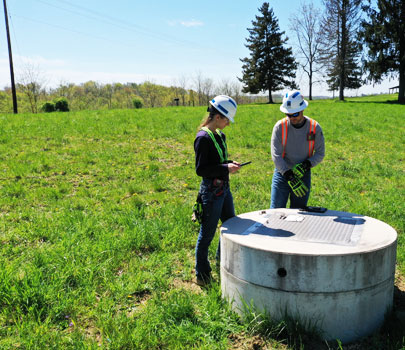Civil engineering is the field of engineering concerned with planning, design, and construction for environmental control, development of natural resources, buildings, transportation facilities, and other structures required for the health, welfare, safety, employment, and pleasure of mankind. The main scope of civil engineering or the task of civil engineering are planning, designing, estimating, supervising construction, managing construction, executing, and maintenance of structures like buildings, roads, bridges, dams, canals, reservoirs, and water treatment plants, etc..
One who designs and maintains works of public utility is known as a civil engineer. Civil Engineers should have qualities like a scientific attitude and an imaginative and intuitive approach. He should have good analysis and decision power. He should be able to solve engineering problems by using mathematical modeling, scientific principles, and information technology. He should be able to operate research techniques for the solution of management problems.
Branches Of Civil Engineering
Buildings are planned according to the fundamental principles of planning and by the laws of local municipal bodies. Building planning requires basic knowledge of the principles of architecture. Buildings may be residential or public buildings like schools, colleges, government offices, hospitals, etc. they are designed according to the need of specific occupants and purposes.
Advanced Construction Engineering:
 |
| Tunnel |
Construction of dams, bridges, tunnels, ports, etc. requires several advanced techniques of construction. Underwater, construction requires a specific type of equipment. Pile foundations or well foundations are generally provided for the foundation of bridges across rivers in alluvial soil. Large scale earthworks in excavation require equipment like power shovels, draglines, bulldozers, etc. For massive concrete work in the dam, a concrete mixing plant is required to be erected at the dam site. Construction of power stations, offshore oil rigs, ports, tunnels, etc. comes under the category of advanced construction.
Structural Engineering:
The branch of civil engineering deals with structural analysis and design of structures. Structural analysis is done to calculate stresses in structural components on the basis of loads acting on structures.
Sections of structural elements like beams, columns, slabs, etc. are designed. Structural analysis requires much calculation hence advanced computing software is used to carry out structural analysis and design. It includes the design of reinforced cement concrete (RCC) and steel structures. The design of multistoried buildings, towers, retaining walls, water tanks, and bridges requires skills and knowledge of structural engineering.
Geotechnical Engineering:
Geotechnical Engineering in the field of civil engineering deals with soil investigation and design of proper foundations of structures.
Soil investigation includes the measurement of soil parameters and safe bearing capacity. It also includes the construction and design of simple foundations, pile foundations, well foundations, caissons, coffer dams, construction of the foundation of dams, construction of tunnels, sub-base of roads, and earthen dams and earth-related constructions. Sound knowledge of geology and geotechnical engineering is necessary for the construction of earth-related structures.
Water Resource Engineering:
Water Resource Engineering means the measurements, utilization, and development of water resources for agriculture, municipal, and power generation purpose. It mainly includes irrigation, and engineering design of hydraulic structures like dams, barrages, hydropower stations, canal and pipe networks, etc.
It also includes watershed planning, water harvesting techniques, soil conservation, and soil reclamation. Hydrology is also a part of water resource engineering. Hydrology includes the study of sources of water, measurement of rainfall, runoff, and flood control.
Transportation Engineering:
Transportation means the movement of passengers and goods by means of vehicles on
land, ships on the water, and aircraft in the air.Transportation Engineering is a branch of Civil Engineering that deals with planning, designing, and construction of roads, bridges, railways, tunnels, harbors, ports, docks, runways, and airports.
As for the development of any nation, a good transportation network is of prime importance. Study of various construction of roads, traffic engineering are also considered under transportation engineering.
Environmental Engineering:
Environmental Engineering deals with pollution control and public health engineering. Different types of pollution are water, air, noise, and other pollution.
Due to the large scale of industrialization, population growth, rapid urbanization, and several other human activities like construction, mining, and transportation, the environment gets polluted. Environment Engineering deals with technologies and facilities which are engaged in reducing pollution. Environmental Engineering includes the design, construction, and maintenance of water treatment plants, wastewater treatment plants, water distribution networks, and sewerage systems, it also deals with solid waste management in towns and cities. Public health engineering includes water treatment, water distribution networks, and solid waste management.
Town Planning:
Town Planning means the planned and controlled growth of a town by dividing the town into different land use zones and regulating building construction to provide a better environment for the people of the town.
In the town planning areas of town are divided into residential, commercial, recreational, and industrial zones which are called zoning. The floor space index and other bylaws are fixed to guide and regulate the building construction.
For towns and cities, master plans for town planning schemes are prepared to accommodate the future growth of the town in a better way. Planning of a very large area covering several towns and villages is known as regional planning.









No comments:
Post a Comment